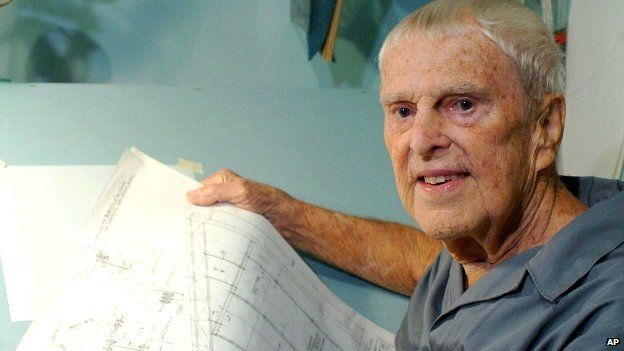German-born US rocket expert Oscar Holderer dies at 95
- Published

A member of the German engineering team that designed the rocket that took US astronauts to the Moon has died in Alabama.
Oscar Holderer, who was 95, suffered a stroke last week and did not recover, his son Michael said.
Mr Holderer was one of about 120 engineers who moved to the US after World War Two, bringing technology used in the German V2 rocket.
They played a key role in the Saturn V rocket used in the 1969 Moon landing.
The team, led by Wernher von Braun, was part of a project called Operation Paperclip that transferred technology used in Germany's V2 and other rockets to the US.
They were originally based at White Sands, New Mexico, but moved to Redstone Arsenal, Alabama, in 1950 where they used early computers and slide rules to design the Saturn V.
'Talented man'
Michael Holderer said his father had designed the high-speed wind tunnel used to develop Saturn and oversaw its construction at Nasa's Marshall Space Flight Center in Redstone.
"He was one of the more hands-on members of the team. He had his own machine shop here in town as a hobby," he said.
Ed Buckbee, a space historian and former Nasa publicist, paid tribute to Mr Holderer.
"He was a very talented man, not only an aeroballistics expert but very accomplished in design and fabrication."
Mr Holderer became a US citizen in 1955. After retiring from Nasa in 1974, he built training devices that are still in use at the US Space and Rocket Center in Huntsville.